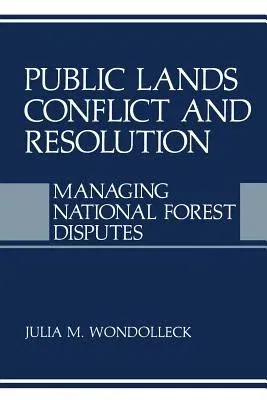Public Lands Conflict and Resolution: Managing National Forest Disputes (Softcover Reprint of the Original 1st 1988)Paperback - Softcover Reprint of the Original 1st 1988, 9 June 2013

Qty
1
Turbo
Ships in 2 - 3 days
In Stock
Free Delivery
Cash on Delivery
15 Days
Free Returns
Secure Checkout
Part of Series
Environment, Development and Public Policy: Environmental Po
Print Length
263 pages
Language
English
Publisher
Springer
Date Published
9 Jun 2013
ISBN-10
1489908005
ISBN-13
9781489908001
Description
Product Details
Book Edition:
Softcover Reprint of the Original 1st 1988
Book Format:
Paperback
Country of Origin:
NL
Date Published:
9 June 2013
Dimensions:
23.39 x
15.6 x
1.5 cm
Genre:
Ecology
ISBN-10:
1489908005
ISBN-13:
9781489908001
Language:
English
Location:
New York, NY
Pages:
263
Publisher:
Weight:
394.63 gm

